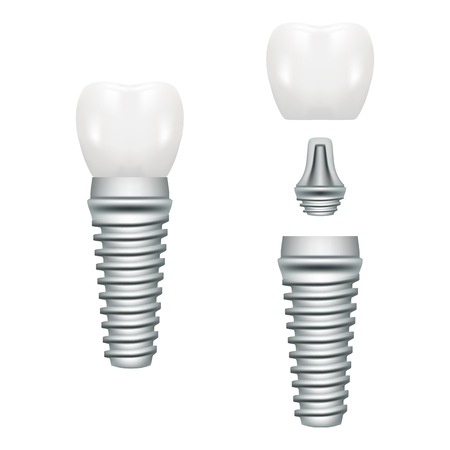Understanding Dental Risks in Exotic Pets
When it comes to exotic pets in the UK, such as rabbits, ferrets, guinea pigs, and even chinchillas, dental health is a topic that often flies under the radar. However, these animals are particularly prone to dental issues due to the unique structure of their teeth and dietary needs. For instance, rabbits and guinea pigs have teeth that grow continuously throughout their lives. If they don’t wear down properly through chewing fibrous hay or appropriate foods, painful conditions like overgrown teeth, sharp spurs, or abscesses can develop. Ferrets, on the other hand, can experience problems like broken teeth or tartar build-up, especially if their diet is high in soft foods or treats. Many UK owners may not realise that subtle signs such as reduced appetite, dribbling, pawing at the mouth, or changes in behaviour could be linked to dental pain. Early detection and regular checks are crucial—neglected dental issues can quickly escalate into more serious health problems requiring costly veterinary intervention. Prioritising dental care for your exotic pet isn’t just about avoiding discomfort; it’s key to ensuring their overall well-being and longevity as valued members of your family.
Availability of Dental Cover in UK Pet Insurance
When it comes to exotic pets such as rabbits, ferrets, guinea pigs, and chinchillas, dental care is a major concern for many UK owners. Unfortunately, not all pet insurance providers automatically include dental cover for these animals, and the options can vary widely. Here’s what you need to know about what is typically available and what details to look out for when choosing a policy.
What Types of Dental Cover Are Typically Included?
Most mainstream pet insurance policies in the UK focus on dogs and cats, so finding comprehensive dental cover for exotics requires a bit more research. Generally, dental cover for exotic pets may be offered as an optional add-on or included only in more premium plans. Coverage often falls into two categories:
| Type of Cover | What It Usually Includes |
|---|---|
| Accident-only Dental | Treatment for injuries resulting from accidents (e.g., broken teeth from falls or fights) |
| Comprehensive Dental | Treatment for both accidents and illnesses (e.g., dental disease, abscesses, tooth extractions) |
Key Points to Check in a Policy
- Species Covered: Not all insurers consider rabbits and other small furries as ‘exotic’—always check your pet is listed by name.
- Disease vs. Accident: Many basic policies only cover accidental injury to teeth, not conditions like malocclusion or abscesses that are common in exotics.
- Pre-existing Conditions: If your rabbit or ferret has had dental problems before, most insurers will exclude further issues relating to those conditions.
- Annual Limits: Dental treatments can be costly. Check if there are separate annual limits for dental care, or if it comes out of your total vet fee allowance.
Example: Comparing UK Insurers
| Insurer | Covers Exotics? | Disease Cover? | Add-On Available? |
|---|---|---|---|
| Specialist Exotic Pet Insurer A | Yes (Rabbits, Ferrets) | Yes (With Premium Plan) | Yes |
| Mainstream Insurer B | No (Cats & Dogs Only) | No | No |
Top Tip for UK Owners
If you have multiple exotic pets at home, some insurers offer multi-pet discounts or tailored family plans—ask about these options to save on premiums while making sure each animal’s dental needs are properly covered.
![]()
3. Key Terms and Conditions to Watch Out For
When exploring dental cover for exotic pets in the UK, such as rabbits, ferrets, guinea pigs, or even parrots, it’s essential to pay close attention to the fine print. Not all policies are created equal, and understanding the typical terms and conditions can help you avoid disappointment when you need to make a claim.
Exclusions: What’s Commonly Not Covered?
One of the first things UK pet owners should check are exclusions specific to dental cover for exotics. Many insurers will not cover pre-existing dental issues, which is especially important if your rabbit or ferret has had dental problems before you take out the policy. Routine treatments such as regular teeth filing or cleaning may also be excluded, as these are often considered part of standard pet care. It’s also common for policies to exclude cosmetic procedures or elective treatments that aren’t deemed medically necessary by a vet.
Waiting Periods: When Does Cover Start?
Most insurance providers in Britain enforce a waiting period before your exotic pet’s dental cover becomes active—typically ranging from 10 days up to a month after you start your policy. This waiting time is designed to prevent claims for issues that may have existed before the policy began. If you’ve just brought home a new chinchilla or parrot, factor in this delay before relying on your policy for any dental emergencies.
Cover Limits: How Much Is Actually Paid Out?
Dental treatment can get expensive, especially for small animals requiring specialist care. UK policies will usually set annual or per-condition limits on how much they’ll pay out for dental work. For example, some plans might cap dental payouts at £500 per year, while others may have separate limits for different types of procedures (like extractions versus infections). Always check whether routine dental check-ups count towards this limit or if it’s strictly for emergency treatments.
Other Important Clauses
Some insurers require you to keep up with regular check-ups at your local vet as a condition of maintaining dental cover. Failing to provide proof of these visits could invalidate your claim. In addition, there may be age restrictions—older pets often face higher premiums or reduced cover levels. Lastly, always double-check whether your chosen insurer has an approved list of vets or specialists; using an out-of-network provider could reduce your reimbursement.
Practical Tip from Experience
From personal experience with our family’s rescue rabbit, we learned the hard way that not all dental issues are classed as emergencies under every policy. Before choosing a plan, ask your provider for clear examples of what is and isn’t covered so you’re not caught out when your furry friend needs help the most.
4. Real-life Experiences from UK Exotic Pet Owners
If you’re considering dental cover for your exotic pet, hearing directly from fellow UK owners can be both reassuring and informative. Here are some real-world examples of how rabbit and ferret owners have tackled dental health issues and navigated the insurance landscape.
Case Studies: Dental Dilemmas and Insurance Outcomes
| Pet | Issue Encountered | Insurance Experience | Outcome |
|---|---|---|---|
| Bunty (Rabbit) | Overgrown molars causing eating problems | Claimed under exotic pet policy with dental add-on; required vets detailed report | 80% of £300 vet bill reimbursed after excess deducted |
| Milo (Ferret) | Broken canine tooth following a fall | Standard exotic policy didnt cover dental; owner upgraded plan after incident | Paid full £120 for extraction, but now covered for future dental issues |
| Lola (Guinea Pig) | Abscessed tooth needing surgery | Policy required pre-approval; claim delayed due to missing paperwork | Received payout eventually, but learned to keep better records for next time |
Lessons Learned from Fellow Owners
- Documentation is key: Many owners found that having thorough vet records and clear communication with their insurer made claims smoother and faster.
- Read the fine print: Not all policies automatically include dental cover—some require an extra premium or specific add-ons.
- Prevention saves money: Regular check-ups often catch small dental problems before they become expensive emergencies, potentially reducing claim amounts or even preventing the need to claim at all.
- Don’t be afraid to ask questions: Several owners mentioned that speaking directly with insurers helped clarify exactly what was covered, saving frustration later on.
A Family’s Story: The Importance of Planning Ahead
The Smith family in Kent shared their experience with their beloved rabbit, Daisy. After noticing Daisy was reluctant to eat her favourite greens, a visit to the vet confirmed severe dental spurs. Luckily, they had recently added dental cover to their pet insurance. “We were relieved when most of the costs were taken care of,” Mrs Smith recalls. “It made us realise how important it is to think about these things before there’s a problem.” Their story is echoed by many UK families who’ve learnt first-hand that planning ahead can make all the difference when it comes to caring for exotic pets’ unique needs.
5. Practical Tips for Preventing Dental Problems
When it comes to exotic pets like rabbits, ferrets, guinea pigs, and chinchillas, preventing dental problems is much easier—and less expensive—than treating them. Here are some everyday strategies UK families can follow to keep their pets’ teeth in tip-top shape at home.
Provide a Species-Appropriate Diet
For rabbits and guinea pigs, unlimited access to high-quality hay is crucial as it helps naturally wear down their ever-growing teeth. Fresh leafy greens add variety and nutrients. Avoid sugary treats or too many pellets, which can lead to dental issues. Ferrets, being obligate carnivores, need a meat-based diet; avoid feeding them fruits or vegetables as these can contribute to tartar build-up.
Encourage Chewing Behaviour
Offer safe chew toys and gnawing blocks designed for each species. Willow sticks, untreated wood blocks, or cardboard tubes are excellent for rabbits and rodents. These items help file down teeth while providing mental stimulation. For ferrets, rubber toys approved for pets can help keep their teeth clean.
Establish a Routine of Dental Checks
Make it a family habit to gently check your pet’s mouth weekly. Look for overgrown teeth, drooling, changes in eating habits, or any signs of pain. Early detection of problems can save your pet from discomfort and prevent costly vet bills down the line.
Maintain Good Hygiene
Keep your pet’s living area clean to reduce the risk of infections that could affect their mouths. Remove uneaten fresh food daily and ensure water bottles or bowls are washed regularly.
Book Regular Vet Visits
A yearly check-up with an exotics-savvy vet is essential—even if your pet seems healthy. Some dental issues aren’t visible without specialist equipment. Vets can spot early warning signs and advise on specific care tailored to your pet’s needs.
Family Involvement Makes a Difference
Involve children in the daily care routines under adult supervision; it’s both educational and helps everyone stay alert to changes in your pet’s health. By working together as a family and following these simple husbandry tips, you’ll give your exotic pets the best chance at a healthy smile—and reduce the likelihood of needing extensive dental cover claims in future.
6. How to Choose the Right Policy for Your Pet
When it comes to dental cover for exotic pets like rabbits and ferrets, UK owners are faced with a bewildering array of insurance options. To make sure your furry or feathered family member gets the best possible care, it’s crucial to compare policies thoughtfully and understand exactly what’s included. Start by making a shortlist of reputable UK pet insurance providers—many mainstream companies now offer specialist cover for exotic species, but not all include dental treatment as standard.
Comparing Insurance Providers
Begin by checking customer reviews and seeking recommendations from your vet or fellow exotic pet owners. Look for insurers with experience in covering the particular needs of rabbits, ferrets, guinea pigs, birds, or reptiles. Some providers may have dedicated exotic pet helplines or access to a network of exotic vets, which can be invaluable in an emergency.
Reading the Small Print
Always scrutinise the policy documents carefully—dental cover for exotics can vary widely between insurers. Check whether dental disease caused by diet or genetics is covered, as some policies only protect against accidental injury to teeth. Pay close attention to exclusions, excess amounts, annual limits on claims, and any waiting periods before cover begins. If you’re unsure about any clause, don’t hesitate to contact the insurer directly; transparency is key when it comes to your pet’s health.
Selecting What’s Best for Your Household
Consider your household’s unique situation: do you have multiple exotics under one roof? Some insurers offer multi-pet discounts or family plans that can make comprehensive cover more affordable. Think about your pet’s age and medical history too—older rabbits and ferrets may need more extensive dental care, so weigh up the cost versus potential benefit. Ultimately, the right policy will balance affordability with peace of mind, ensuring your beloved companion has access to quality dental treatment whenever needed.


